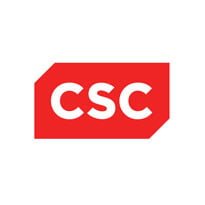CSC has confirmed it is withdrawing Synergy, Premiere and Ganymede from the primary care market, but will support the products for at least another year.
EHealth Insider reported this week that the company had decided to pull its former iSoft products from the NHS GP IT market, but the company said the suggestion was “speculation”.
However, the company sent out an announcement to customers at noon today confirming the decision.
It says that following an in-depth review of CSC’s strategy for the UK primary care market, the company has concluded that it: “will not support beyond current, and any agreed extended, contractual commitments our GP applications; Synergy, Premiere and Ganymede."
“Clearly this decision follows an exhaustive evaluation of a number of options, but we believe this decision is in the best long term interests of our customers,” the announcement says.
“Primary care remains a key area for CSC, and as part of our strategic review we have been in discussions with other GP system suppliers to ensure a smooth and controlled transfer to alternative systems as provided under the appropriate framework agreement.
“We will continue to work closely with NHS Connecting for Heath, NHS Wales Informatics Service and Business Services Organisation to finalise transition arrangements and provision of service to support your practice until the transfer to an alternative system is completed.
“We anticipate providing this support until at least 31 October 2013 for practices in England and Northern Ireland and March 2014 for practices in Wales.”
As of June this year, 582 practices in the UK were using a CSC (formerly iSoft) product. This included 467 in England, representing 5.6% of the market, 53 in Northern Ireland (15%), none in Scotland and 62 in Wales (13%).
The chairman of the iSoft user group, Dr John Lockley, said in a email to users that the committee has received the news with "great sadness."
"For the last ten years the user group has consistently been warning the successive companies that produced these systems – Torex, iSOFT and CSC – that their development of these products was falling behind, that their user base was diminishing as a result, and that if this process were not reversed then the decline of these systems would become permanent," he wrote.
"Sadly, our predictions have now come true."
He said the user group committee will now re-arrange the annual conference, held on 11-12 October, so that it includes presentations from the other suppliers and discussions about the best way to move from one system to another.
"We have already secured agreement with CSC that they will continue to fund this year’s conference and it is clearly now even more vital than ever that users attend.
"We firmly believe that we can, together, help each other to choose and successfully migrate to the system of choice for each individual practice."
Joint chairman of the BMA and RCGP’s joint IT committee and iSoft user Dr Paul Cundy said the news was “very disappointing.”
“It’s a great setback for GP computing, but GPs should not panic, there’s plenty of time for a managed migration away to other systems and I would strongly recommend that GPs examine all the other GPSoC systems before making a decision,” he added.
“It’s eminently easy these days for potential alternative suppliers to take a backup and show your data on their system so that they can be compared side by side.”
Dr Cundy said practices should be very way of the April 2013 Quality and Outcomes Framework data deadline and he advised against any migrations in the first three months of next year unless a practice is “absolutely content.”
“This means there’s a window for migration prior to January and another after April next year.”
He explained that because this is a forced migration, GPs will have equal choice of any system under GPSoC.
“There’s no question of their needing to develop a business case to support a change request and there’s no financial incentive for PCTs to get practices on to any particular system.”

